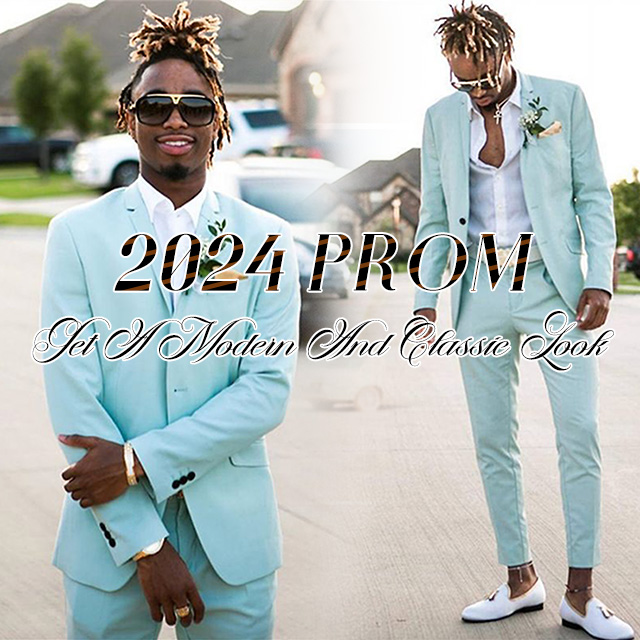Aromatherapy has long been celebrated for its ability to heal the mind, body, and spirit through the power of natural scents. But did you know that essential oils can also play a transformative role in your beauty regimen? With their remarkable therapeutic properties, essential oils are an ideal addition to skincare, haircare, and self-care routines, allowing you to achieve glowing skin, shiny hair, and an overall sense of well-being. Let’s delve into how you can harness the power of aromatherapy to enhance your beauty routine, naturally and effectively.
1. Understanding Aromatherapy and Its Benefits
Aromatherapy is the use of essential oils extracted from plants to promote health and well-being. These oils are typically derived from flowers, leaves, bark, or roots, and contain concentrated compounds that have been used for centuries for medicinal and cosmetic purposes. The magic of aromatherapy lies in its ability to impact both the mind and body—certain aromas can uplift your mood, reduce stress, or even help you sleep better, all of which have a positive effect on your beauty.
When it comes to beauty, the benefits of aromatherapy go beyond the surface. Essential oils have powerful antibacterial, anti-inflammatory, and antioxidant properties that can benefit the skin and hair, addressing a variety of common beauty concerns. Additionally, the sensory experience of using essential oils can elevate your beauty routine into a luxurious ritual, encouraging relaxation and enhancing your overall well-being.
2. Skin Benefits of Aromatherapy
Essential oils can work wonders on the skin, addressing concerns such as dryness, acne, aging, and sensitivity. Depending on your skin type and concerns, you can incorporate specific essential oils to achieve glowing, healthy skin. Here are some essential oils commonly used in skincare and their benefits:
- Lavender Oil: Known for its calming and soothing properties, lavender oil is perfect for sensitive or irritated skin. It helps reduce redness and inflammation, making it ideal for those with acne-prone skin. Lavender oil also promotes wound healing, making it a great choice for addressing acne scars.
- Tea Tree Oil: One of the most popular essential oils for acne treatment, tea tree oil has natural antibacterial and antifungal properties that can help reduce breakouts. It’s a gentle yet effective way to target pimples without over-drying the skin.
- Frankincense Oil: This powerful essential oil is often used in anti-aging skincare products. Frankincense oil helps promote collagen production, reduces the appearance of fine lines and wrinkles, and evens out skin tone, giving your skin a youthful glow.
- Rosehip Oil: Rich in vitamins A and C, rosehip oil is known for its regenerative properties. It helps to fade dark spots, reduce hyperpigmentation, and improve skin texture. It is also deeply moisturizing, making it ideal for dry and mature skin.
To use essential oils in your skincare routine, always dilute them with a carrier oil, such as jojoba, almond, or coconut oil, before applying them to the skin. Essential oils are highly concentrated, and using them undiluted may cause irritation.
3. Aromatherapy for Haircare
Aromatherapy can also enhance your haircare routine, promoting healthy hair growth, reducing dandruff, and adding shine. Here are some of the essential oils that can be beneficial for your hair:
- Rosemary Oil: Rosemary oil is known for its ability to stimulate hair follicles, promoting healthy hair growth and preventing thinning. It also improves blood circulation to the scalp, which can help strengthen the hair roots and prevent hair loss.
- Peppermint Oil: The cooling sensation of peppermint oil makes it an invigorating addition to your haircare routine. Peppermint oil helps balance oil production, making it ideal for those with oily scalps. It also helps improve scalp health, reducing dandruff and irritation.
- Ylang Ylang Oil: If you have dry hair or scalp, ylang ylang oil is an excellent choice. It stimulates sebum production, adding moisture and hydration to dry hair. Ylang ylang oil also has a lovely floral scent that leaves your hair smelling fresh and fragrant.
To use essential oils for your hair, add a few drops to your shampoo or conditioner, or create your own hair mask by mixing essential oils with a carrier oil. Massage the mixture into your scalp and let it sit for 15-20 minutes before washing it out. This will help nourish your hair and leave it looking healthy and shiny.
4. Enhancing Your Beauty Routine with Aromatherapy
Aromatherapy can be seamlessly integrated into your beauty regimen to enhance your skincare, haircare, and overall experience. Here are some ideas for incorporating aromatherapy into your daily routine:
- Facial Steam: A facial steam with essential oils is a wonderful way to open up your pores, deep clean your skin, and enjoy the relaxing benefits of aromatherapy. Add a few drops of lavender, chamomile, or tea tree oil to a bowl of hot water. Lean over the bowl with a towel draped over your head to trap the steam, and inhale deeply. This helps to detoxify the skin and calm the mind.
- Aromatherapy Facial Mist: A refreshing facial mist can be used throughout the day to hydrate and soothe your skin. Mix distilled water with a few drops of your favorite essential oil, such as rose or geranium, in a spray bottle. Mist your face whenever you need a pick-me-up or to set your makeup.
- Aromatherapy Massage: Incorporating a facial or body massage into your beauty routine not only helps to improve circulation and tone the skin but also provides the calming benefits of aromatherapy. Mix your chosen essential oil with a carrier oil and gently massage it into your face or body. This practice can help reduce tension, enhance your skin’s appearance, and promote relaxation.
5. The Mind-Body Connection in Beauty
The beauty of aromatherapy lies in its ability to bridge the gap between the mind and body. Stress, anxiety, and lack of sleep can all have a significant impact on your skin and overall appearance. By using essential oils with calming and stress-relieving properties, such as lavender, chamomile, and sandalwood, you can help create a sense of relaxation and well-being, which will reflect in your skin.
Creating a bedtime ritual with aromatherapy is a great way to wind down and prepare for restful sleep. Diffuse calming essential oils in your bedroom, or add a few drops of lavender oil to your pillowcase. A good night’s sleep is crucial for skin regeneration, and aromatherapy can help you achieve the restful sleep needed for radiant, healthy skin.
6. DIY Aromatherapy Beauty Recipes
Making your own aromatherapy beauty products at home can be a fun and creative way to personalize your beauty routine. Here are some simple DIY recipes to get you started:
- Calming Lavender Body Oil: Mix 10 drops of lavender essential oil with 2 tablespoons of sweet almond oil. Apply this calming body oil after a shower to lock in moisture and enjoy the soothing aroma of lavender.
- Peppermint Lip Scrub: Combine 1 tablespoon of sugar, 1 tablespoon of coconut oil, and 1-2 drops of peppermint essential oil. Use this lip scrub to exfoliate your lips and leave them feeling soft and smooth.
- Nourishing Hair Mask: Blend 3 tablespoons of coconut oil with 5 drops of rosemary essential oil and 5 drops of ylang ylang oil. Apply the mask to your hair, focusing on the ends, and leave it on for 30 minutes before washing. This mask will help nourish and strengthen your hair, leaving it soft and shiny.
7. Safety Tips for Using Essential Oils
While essential oils offer numerous beauty benefits, it’s important to use them safely. Essential oils are highly concentrated, and improper use can cause skin irritation or allergic reactions. Always dilute essential oils with a carrier oil before applying them to your skin, and conduct a patch test to check for any adverse reactions.
Avoid using essential oils near your eyes, and be cautious with photosensitive oils, such as lemon or bergamot, which can cause skin irritation when exposed to sunlight. If you’re pregnant, nursing, or have any underlying health conditions, consult with a healthcare professional before using essential oils.
8. Choosing High-Quality Essential Oils
To get the most out of aromatherapy, it’s important to choose high-quality essential oils. Look for oils that are 100% pure, without any additives or synthetic fragrances. Reputable brands will often provide information on the sourcing and extraction methods used, as well as third-party testing to ensure quality and purity.
Avoid fragrance oils, as they are often synthetic and do not provide the same therapeutic benefits as pure essential oils. Investing in high-quality oils will ensure that you get the best results for your beauty regimen, as well as the full range of aromatherapy benefits.
Aromatherapy is a powerful tool that can enhance your beauty routine by addressing both physical and emotional well-being. Whether you’re looking to improve your skin, nourish your hair, or simply add a sense of relaxation to your day, essential oils can be a natural and effective addition to your regimen. By incorporating these aromatic botanicals into your skincare, haircare, and self-care routines, you can create a holistic beauty experience that nurtures both body and mind.








